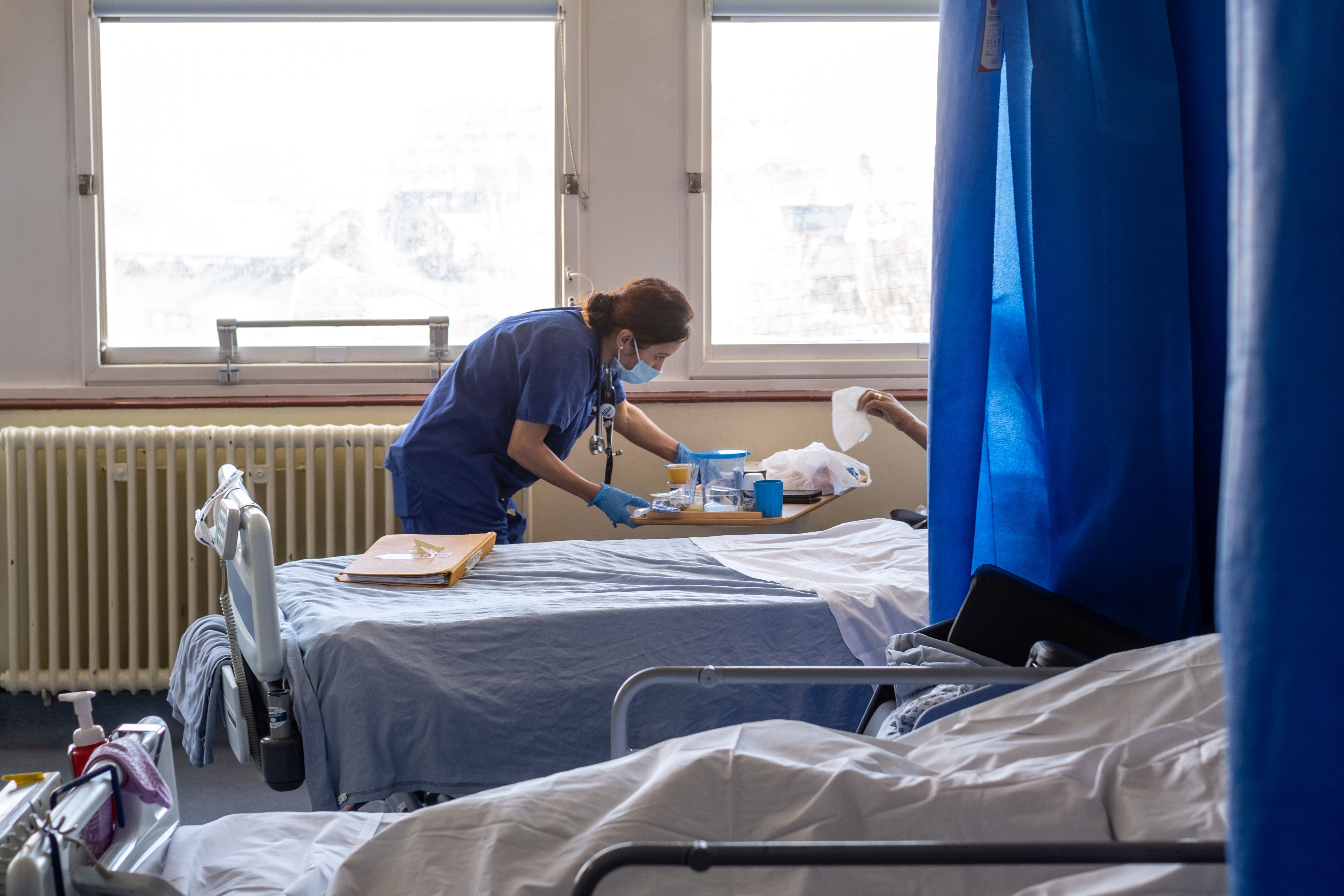Failure to deal with strikes is inflicting untold harm on the NHS – and its users
Editorial: It is not sustainable, and the public will not understand, or forgive, ministers, NHS managers and union leaders who cannot find compromise

There is much to be said for using clinical targets in the NHS. They can help to focus resources on priorities, drive efficiencies at a local level, and provide transparency about how well the health service is coping.
The latest survey, conducted by the BBC and covering England, confirms what has been all too clear this winter across the UK: that accident and emergency departments are suffering from both intense pressure of demand and a shortage of resources. They are near breaking point. Indeed, A&E waiting times have worsened to such a degree this winter that at some hospitals, more than half of patients have had to wait for more than four hours to be seen.
Some are left for a day or more, in extreme cases. Four hours was the original benchmark introduced by the Labour government in 1997, with NHS trusts supposed to meet the goal in 98 per cent of cases. It enjoyed success, yet now such an achievement is less common, and there is more of a postcode lottery about waiting – you’re unlucky to fall sick in Hull, but relatively fortunate to do so in Northumbria.
Stories of people being treated on trolleys in corridors, and fitted with drips while seated in waiting areas, add to the picture of distressing failure. According to The Independent’s groundbreaking investigation last December, the crisis in Britain’s A&E departments has been linked to more than 15,000 deaths in 18 months, with as many as 500 patients a week dying because of long waits for emergency care.
The number of avoidable deaths has been three times as high as it would have been if hospital waits for emergency treatment had stayed at pre-pandemic levels. Post-pandemic backlogs and staff shortages, combined with longer-term trends in demographics and funding, have framed this crisis, and the industrial action is making matters unnecessarily worse.
Behind all of these grim statistics lie families losing loved ones, and patients watching their condition deteriorate, suffering life-changing consequences for want of timely treatment. Each case is a tragedy, but the fact that the crisis has gone on for so long ought not to numb us from that human pain, both physical and emotional.
In such circumstances, it must be asked whether NHS targets that are completely unachievable are doing more harm than good. There must come a point at which the realities of the crisis have to be confronted, and the Sisyphean attempt to honour targets framed in easier times becomes demoralising and counterproductive.
There is little point in pushing managers to devote resources to hitting targets when those resources – staff, beds, equipment – are simply not available. A suspension of the more unrealistic targets might relieve frontline workers of some of their burden of psychological stress.
But that still leaves other short-term obstacles to easing the crisis. To be fair to ministers, extra funding has been allocated to the service, including new ambulances, and the prime minister has pledged that “NHS waiting lists will fall and people will get the care they need more quickly”. Some of that will happen naturally, as the clinical backlogs are gradually cleared and as Covid, flu and other respiratory illnesses subside as spring approaches.
What the government, along with the health service unions, has failed to do is to end the industrial action that is unavoidably adding to the misery of those affected.
As the head of the NHS Confederation, Matthew Taylor, has warned, it is the growing, cumulative effect of postponed procedures such as elective surgery that is slowing down a much-needed improvement in waiting times and waiting lists, and will push the crisis on into the later spring and summer. Reports that nurses in A&E and intensive care are being asked to join the strikes are especially concerning.
Every day of industrial action puts back the recovery of the NHS itself. It is not sustainable, and the public will not understand, or forgive, ministers, NHS managers and union leaders who collectively cannot compromise enough to reach a deal on pay and conditions – as they will have to in the end – and stop the strikes before yet more harm is inflicted on their fellow citizens.



Join our commenting forum
Join thought-provoking conversations, follow other Independent readers and see their replies
Comments